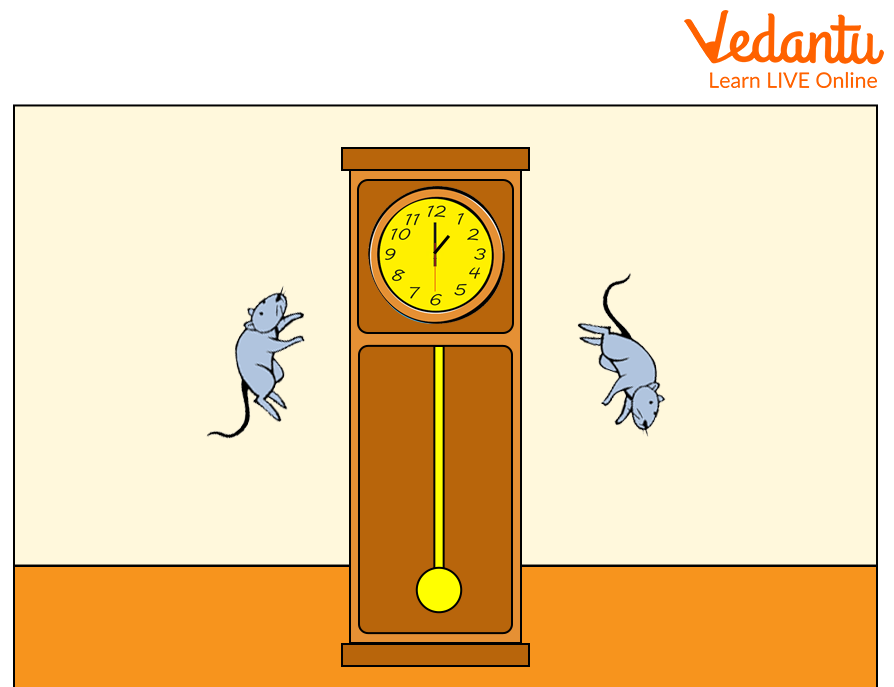Hickory Dickory Dock Rhyme: A Traditional Song for Kids
Dating back to the 18th century in London, one of the very interesting traditional nursery rhymes named “Hickory Dickory Dock” was recorded.
However, a special thing that happened was this rhyme was recorded as “Hickere, Dickere Dock” by Tommy Thumb in his Pretty Song Book collection in the year 1744 in London.
Sometime later, gaining popularity, the same rhyme got another version that was published in Mother Goose’s Melody (1765) with the title “Dickery Dock”.
However, as per some sources, this song was composed by Oliver Goldsmith from Dublin, for a nursery rhymes collection. Let’s read ahead to know more about your favourite nursery rhyme, ‘Hickory Dickory Dock’.
Hickory Dickory Dock Rhyme
‘Hickory Dickory Dock’ is one of the most appreciable nursery rhymes in the English language. However, yet, its purpose is unclear or obscure. So, what does ‘Hickory Dickory Dock’ actually mean? Does it mean counting down as we can see the title? First, here’s a reminder of the words:

Hickory Dickory Dock, The mouse ran down
Hickory, Dickory, Dock,
The mouse ran up the clock;
The clock struck one,
The mouse ran down,
Hickory, Dickory, Dock.
It’s notable that the above version is derived from Iona and Peter Opie’s The Oxford Dictionary of Nursery Rhymes (Oxford Dictionary of Nursery Rhymes). However, some versions offer a difference in their expression and an alternative rhyme with ‘one’ that you can see below:
Hickory, Dickory, Dock,
The mouse ran up the clock;
The clock struck one,
And down he runs,
Hickory, Dickory, Dock.
Here, in the fourth line, we can see the change in the rhyme as compared to the one written above.
A Short Analysis of Hickory Dickory Dock by Peter Opies
Peter Opies tells us that this rhyme was originally regarded as the counting out tool for a teacher to help teach the children, but the nonsensical ‘Hickory, Dickory, Dock’ would suggest something different.
He also noted that shepherds in Westmorland (now part of Cumbria, in northern England) have been using dialect numbers in this song like Hevera, Devera, and Dick, which may have become ‘Hickory, Dickory, Dock’.
From the above text, we notice that the Hickory Dickory Dock rhyme was initially meant to teach counting down to children. However, yet, the significance of this song is unclear (obscure). Besides this, the short analysis by the author Peter Opies is neat and there may be a link, but it’s difficult to prove with clarity. However, this rhyme has a nice theory, though.
A Tip for Parents
Simply reciting the poem or asking your child to mug it up from the book may not result in a fruitful learning experience for your child. Hence, the best way to approach this nursery rhyme is to read it once initially, then discuss a little about the origin and background of the poem in the form of a story to capture their interest and then proceed to singing the stanzas of the poem to enable your child to learn it faster and in a fun way.


FAQs on Hickory Dickory Dock: A Song with Many Versions and Various Purposes
1. What’s so special about the Hickory Dickory Dock rhyme?
There are two different tunes for the song Hickory Dickory Dock, one sung in the UK and one in the USA.
Originally, most probably the “Hickory Dickory Dock” song was a counting-down song. Starting with a bunch of sounds that imitate (sound-like or copy) the clock sounds, “Hickory, Dickory, Dock” is an elementary tool to help teach children the time.
2. What is the meaning behind Hickory, Dickory, Dock?
Several accounts from the nineteenth century explain that children used 'Hickory, Dickory, Dock' as a way of deciding which of them would start a game: it was a method of choosing who would go first.





